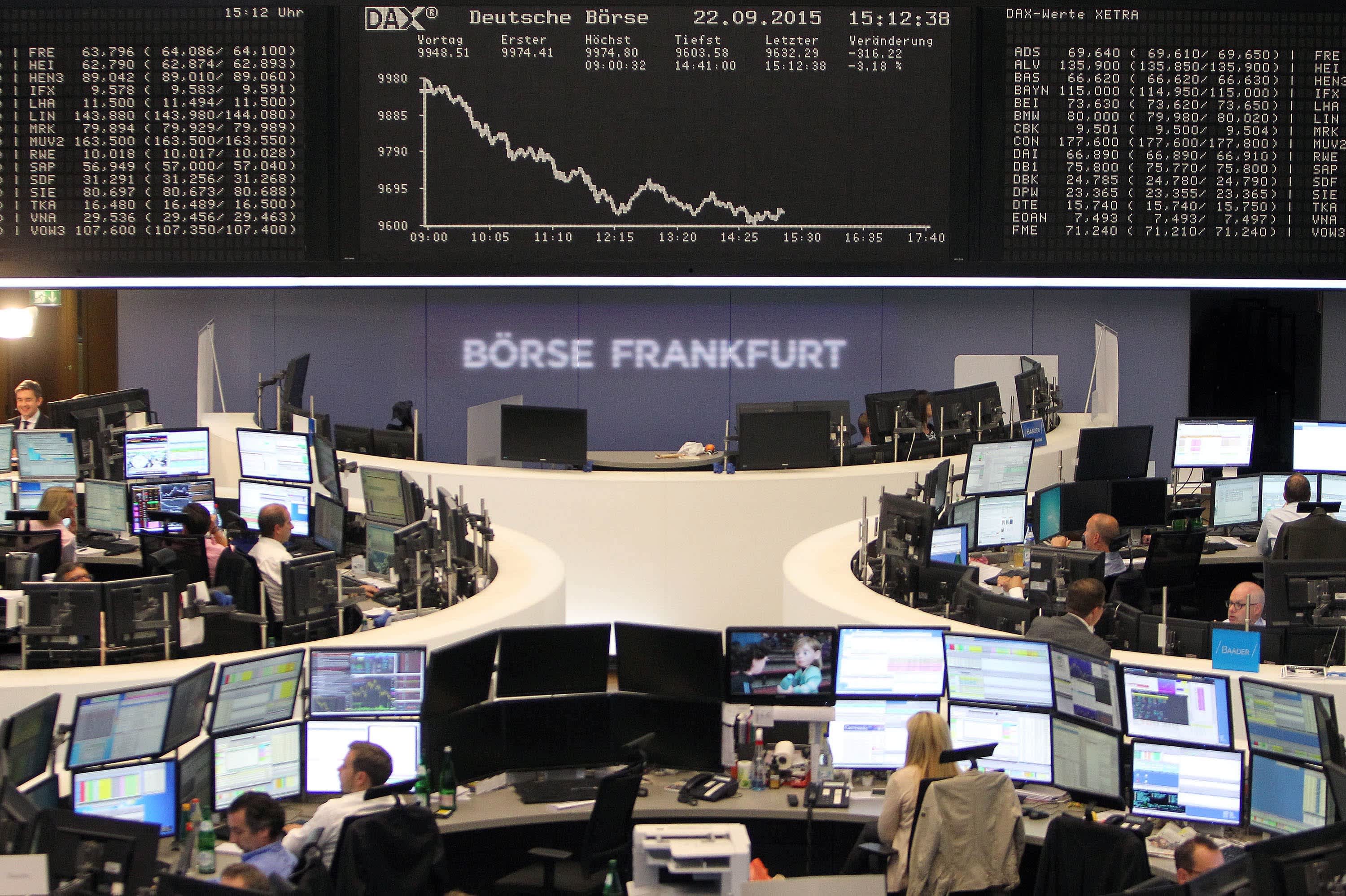European Stocks Slip as Market Optimism Fades Amid Renewed U.S.–China Trade Tensions
European Stocks Slip as Market Optimism Fades Amid Renewed U.S.–China Trade Tensions
By
David Goldfarb
Last updated:
October 14, 2025
First Published:
November 30, 2025

Photo: CNBC
European markets opened on a weaker note Tuesday, snapping the early-week optimism that had briefly lifted investor sentiment. The downturn came as renewed tensions between the United States and China reignited fears of a potential trade conflict that could weigh on global growth and investor confidence.
A Sudden Shift in Market Mood
After posting modest gains on Monday, major European indexes fell in early trading. The Stoxx 600—a broad measure of European equities—slipped around 0.5%, with Germany’s DAX and France’s CAC 40 both losing nearly 0.6% by mid-morning. The FTSE 100 in London also opened in the red, tracking overnight losses from Asia.
Investors who had been cautiously optimistic at the start of the week are now reassessing risk, as geopolitical uncertainty clouds the outlook. “The fragile optimism that markets built up over the past few days has evaporated quickly,” said one London-based analyst.
Trade Tensions Return to the Spotlight
The renewed market jitters stem from comments by U.S. President Donald Trump, who threatened to impose a new wave of tariffs on Chinese imports in response to Beijing’s export restrictions on rare earth minerals. The move, he said, was meant to “financially counter” China’s tightening of control over these crucial materials.
China, which controls roughly 70% of the global supply of rare earth elements, plays a critical role in high-tech manufacturing—from electric vehicles and defense equipment to semiconductors and renewable energy technologies. Any disruption in this supply chain could ripple through several key industries worldwide.
Trump’s statements initially sparked fears of escalating tensions reminiscent of the 2018–2019 trade war that rattled markets globally. However, in a post on Truth Social later Sunday, he appeared to tone down his stance, saying that relations with China “will all be fine.” Still, the mixed signals left investors uncertain about what comes next.
China’s Market Rally Faces Pressure
The renewed friction also threatens to derail China’s recent stock market rebound, which had gained momentum on expectations of new government stimulus measures aimed at bolstering growth. The Shanghai Composite Index rose nearly 4% last week, but momentum is now fading as investors weigh the possibility of another prolonged trade battle.
Analysts note that if tensions intensify, foreign investment inflows into China could slow, particularly in sectors heavily dependent on U.S. exports or advanced manufacturing technologies. “Markets are trying to digest whether this will escalate or just remain political noise,” said a Hong Kong-based strategist.
Broader Global Impact
The timing of the trade spat comes as investors worldwide are already grappling with high interest rates, slowing economic growth, and volatile energy prices. European exporters, in particular, are vulnerable to any disruption in global supply chains. Germany’s manufacturing-heavy economy could face renewed pressure if tariffs expand or commodity prices surge.
Meanwhile, the U.S. dollar strengthened slightly on safe-haven demand, while oil prices dipped amid concerns that renewed tensions could dampen global trade and energy consumption.
Market Outlook
While many analysts believe the current sell-off is a short-term reaction, the episode underscores how fragile investor sentiment remains in the face of geopolitical risk. If diplomatic tensions persist, global markets could see another round of volatility heading into the year’s final quarter.
For now, traders are watching closely for official statements from both Washington and Beijing, hoping for signs that diplomacy will prevail before the situation escalates further.
As the week unfolds, European investors will likely continue to tread cautiously—balancing optimism over economic recovery against the ever-present threat of a new trade war.
Popular articles
Subscribe to unlock premium content
Gilded Holidays in Fashion

How HBO Max Used the Power of Limited Series to Redefine Streaming Competition and Challenge Netflix’s Binge Culture

How Stranger Things Revolutionized Netflix and Redefined Streaming Entertainment

Gilded Holidays in Fashion

How HBO Max Used the Power of Limited Series to Redefine Streaming Competition and Challenge Netflix’s Binge Culture

Gilded Holidays in Fashion









